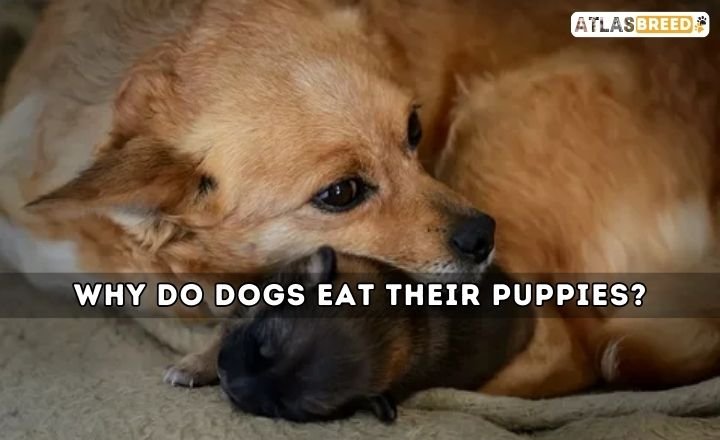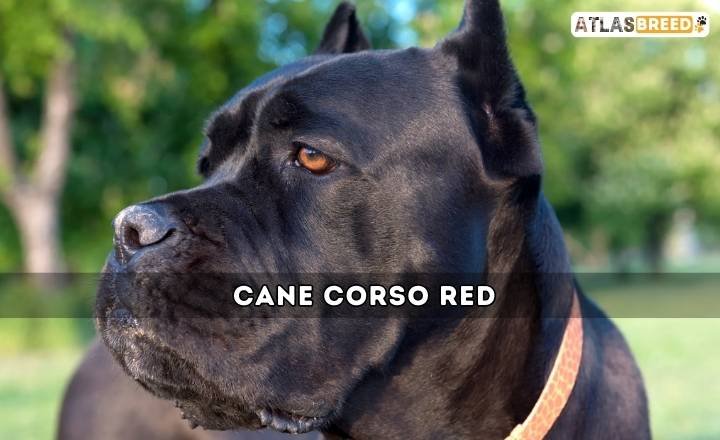In nature’s unpredictable tapestry, there lies an unsettling phenomenon that can leave even the most seasoned pet owners bewildered: why do dogs eat their puppies. Often shrouded in misunderstanding and horror, raises challenging questions about survival instincts, maternal bonds, and the intricate dance of natural selection.
As adorable as they are vulnerable, newborn pups navigate a world rife with both affection and peril. While it’s easy to assume that all mothers will nurture their young without hesitation, reality reveals a more complex truth.
Canine Maternal Behavior As The Main Reason Why Do Dogs Eat Their Puppies
Various factors, such as stress and environmental conditions, can influence a mother dog’s instinct to consume a puppy.
Suppose a mother senses that her litter is weak or ill. She may instinctively eliminate these vulnerable members to conserve resources for the healthier pups, which is a hard but necessary choice for survival in the wild.
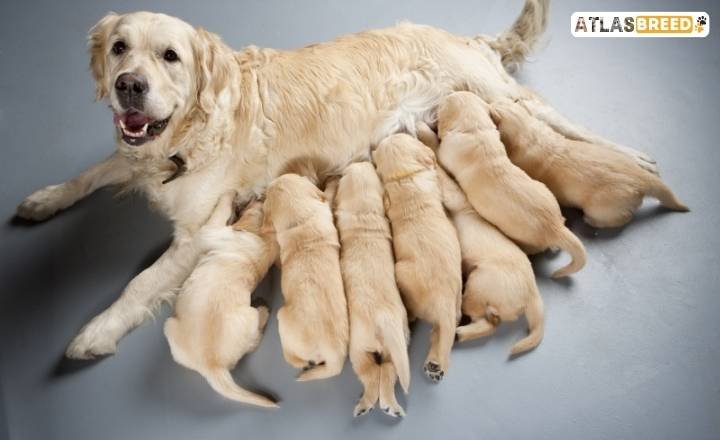
Maternal bonding requires immense energy and dedication from the mother. In situations where she feels overwhelmed or incapable of caring for all her offspring due to insufficient food or inadequate living conditions, animals exhibit this drastic behaviour as an adaptive strategy.
Nutritional Stress In Mom Dogs
Nutritional stress in mom dogs can have profound implications on their health and the well-being of their puppies when pregnant or nursing, a mother dog’s nutritional needs skyrocket to support the growth and development of her pups.
A deficiency in essential nutrients such as proteins, vitamins, and minerals can lead to significant behavioural changes, including the distressing phenomenon where a dog might eat her puppies.
This behaviour isn’t merely instinctual for some breeds, such as the Cocker Spaniel, Cocker Spaniel and Miniature Rottweiler but often stems from overwhelming stress caused by inadequate nutrition. If a mother feels that she cannot effectively care for her litter due to malnourishment, she may resort to this drastic action.
Unhealthy Pups
Unhealthy pups can stem from various factors, and one often overlooked issue is how stress or environmental conditions affect a mother dog’s behaviour. Distressed mothers may resort to a troubling instinct to eat their puppies.
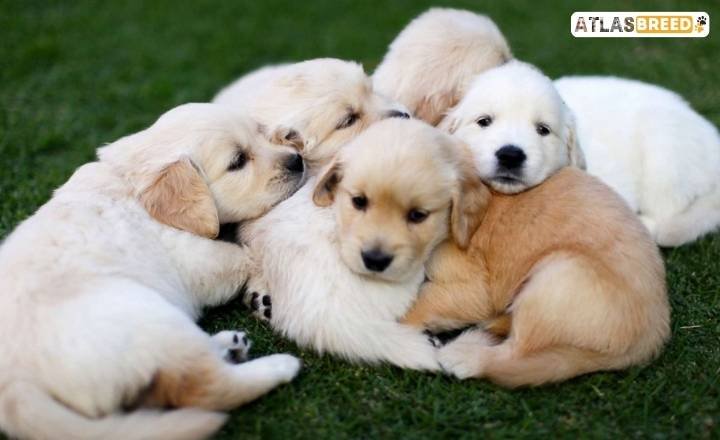
This phenomenon isn’t as uncommon as one might think; it can be driven by desperation, lack of resources, or even survival instincts deeply rooted in canine behavior. Understanding this unsettling behavior requires an exploration of the mother’s well-being and the surrounding environment.
Hormonal Imbalances Postpartum
Hormonal imbalances postpartum can manifest in various ways, impacting not only physical health but also emotional well-being. After childbirth, a woman’s body undergoes significant hormonal shifts as it transitions from pregnancy back to its pre-pregnancy state.
These fluctuations can lead to symptoms ranging from fatigue and mood swings to more severe cases like postpartum depression. Understanding this delicate balance is crucial; it highlights the need for new mothers to prioritize self-care and seek support rather than feeling isolated or guilty about their experiences.
Prolactin
Postpartum hormonal imbalances can lead to elevated levels of prolactin, a hormone that plays a significant role in lactation and maternal behavior. While many may associate high prolactin with breastfeeding, its effects extend beyond milk production. Elevated prolactin levels can trigger mood fluctuations and emotional challenges, often leaving new mothers feeling overwhelmed.
Cortisol And Adrenaline
The postpartum period is filled with a whirlwind of emotions and challenges, and hormonal imbalances can add an extra layer of complexity. Elevated cortisol levels, often termed the “stress hormone,” may persist well into the postpartum phase due to sleepless nights and the demands of caring for a newborn.
Inexperienced Mothers
Inexperienced mothers often navigate the overwhelming journey of motherhood with a mix of intuition and trepidation. This transition, while filled with joy, can also bring forth moments of uncertainty and self-doubt.
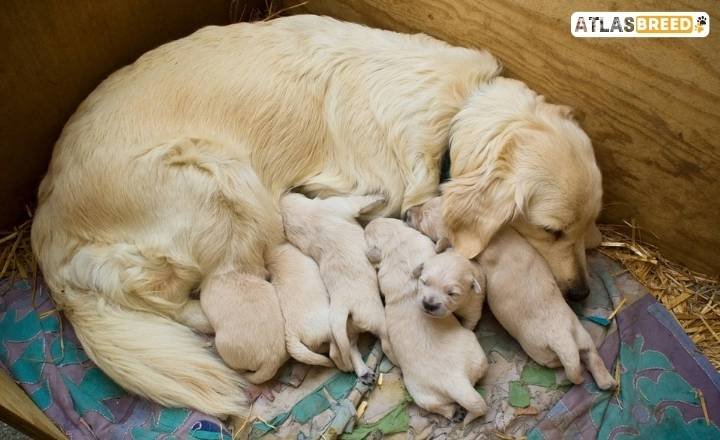
Such feelings are not uncommon; many first-time mothers grapple with the challenges of caring for a vulnerable newborn or, in unique cases like certain dog breeds, even puppies.
Environmental Influences
Environmental influences are pivotal in shaping animal behaviour, particularly among canines. One striking phenomenon is the tendency of some dogs to eat their own puppies, a practice that bewilders many pet owners. This behaviour can be traced back to instinctual survival strategies deeply rooted in nature.
In times of stress or when the environment poses threats, such as an inadequately safe space or a lack of resources, mother dogs may resort to this extreme action to protect themselves and their surviving offspring.
Psychological Aspects
The psychological aspects surrounding a mother dog eating her puppies can be deeply perplexing. They weave together instinctual behaviour with environmental influences. While this behaviour may seem shocking to us, it often stems from a protective instinct.

If the mother perceives that her litter is weak or sickly, she may consume it as a survival strategy. In the wild, this harsh reality ensures that energy and resources are not wasted on puppies unlikely to thrive an evolutionary adaptation designed to preserve the health of the remaining offspring.
A disturbed or anxious mother might resort to such drastic measures due to perceived threats around her nesting area, indicating an overwhelming need for security over nurturing instincts.
Medical Conditions And Pain
Pain is a complex experience, particularly when intertwined with various medical conditions. It is an essential alert system for our bodies, signalling everything from minor injuries to chronic diseases.
The emotional and psychological impact of pain cannot be overstated chronic conditions can lead to feelings of isolation, anxiety, and depression. Understanding this multifaceted relationship between physical ailments and psychological well-being is crucial for both patients and healthcare providers in crafting effective treatment plans.
Equally intriguing is how certain medical conditions manifest unexpectedly across different species. While humans express pain verbally or through body language, animals may resort to behavioural changes that puzzle their owners.
Conclusion
Factors such as maternal stress, illness, or environmental pressures can lead a mother dog to take such drastic measures. Understanding these behaviours allows us to better support canine mothers during and after the birthing process.
By ensuring a safe and comfortable environment, we can help mitigate the risks associated with this troubling behaviour. As responsible pet owners and advocates, it is essential that we educate ourselves about canine reproductive health to promote the well-being of both mothers and their pups.
FAQs
Do Dogs Reject Their Puppies If You Touch Them?
Handling new puppies should be kept to a minimum, but not because it will cause the mother to reject them.
Why Do Mother Dogs Keep The Father Away?
The mother dog may be protective of her pups and not be comfortable with the father dog around them.
Does A Father Dog Know His Puppies?
It’s generally recognized that male dogs don’t recognize their puppies and do not harbour paternal instincts. Their paternal instincts are generalized rather than specific to their litters.
What Are Bad Signs After A Dog Gives Birth?
Your dog will be very protective of her puppies to the extent that she may not want to leave their side. She might even showcase bouts of protective aggression.
